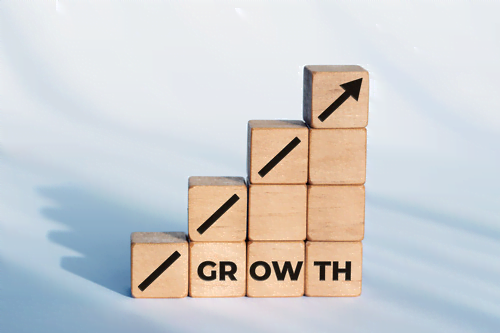India has experienced rapid economic growth and development in recent decades, improving living standards for hundreds of millions. However, this progress has also contributed to elevated pollution levels in many urban and industrial areas. As a responsible global stakeholder committed to sustainability, India is now seeking balanced, long-term solutions to enhance environmental protection while maintaining economic momentum. Feedstocks is one option that helps in this issue.
The Challenge of Pollution
Rising vehicle and factory emissions have led to unhealthy air quality in many Indian cities. The World Health Organization classifies 21 of the world’s 30 most polluted cities as Indian, with Delhi topping lists as the most polluted capital globally. Pollution disproportionately impacts vulnerable groups and poses growing public health risks. It also incurs economic costs as high as 8.5% of India’s GDP according to some studies. While regulations and enforcement have strengthened, bolder action is needed to curb pollution at its sources.

Evaluating Alternative Feedstock Options
A variety of alternative feedstocks show promise in reducing emissions from transportation, power generation and industry:
- Biofuels: Biodiesel and ethanol produced from crops like jatropha and sugarcane can replace diesel and gasoline usage. With proper cultivation practices, biofuels offer carbon savings versus fossil fuels. Challenges include potential food vs fuel conflicts and high production costs currently.
- Municipal Solid Waste: India’s cities generate over 62 million tonnes of waste annually. Harnessing this underutilized resource for energy presents a win-win. Technologies gasify waste to generate syngas for power or convert it into refuse-derived fuel for cement kilns and boilers. This diverts waste from landfills while generating renewable energy.
- Biogas: Capturing methane from organic waste at landfills, sewage treatment plants and livestock farms yields a valuable fuel. Over 6,000 biogas plants already operate in India, but greater scale-up could displace LPG and natural gas. Biogas also improves sanitation and public health.
- Algal Biofuels: Microalgae grown in wastewater or saline environments can produce biodiesel or jet fuel. As they do not require arable land, algal fuels avoid food security concerns. While high production costs remain a barrier, research continues apace to optimize algal strains and cultivation methods.
Each option carries benefits as well as economic and technical challenges. A balanced portfolio leveraging multiple feedstocks tailored to local conditions may optimize outcomes.
Recommended Strategies for Adoption
To realize feedstock potential at an ambitious yet practical scale, the following multi-pronged approach is recommended:
- Policy Push: Strong policy signals like biofuel blending mandates, carbon pricing and waste management reforms can drive long-term investor confidence and private sector participation.
- Innovation Funding: Increased R&D funding via public-private partnerships can help optimize feedstock yields, lower costs and commercialize technologies. India’s innovation ecosystem is well-positioned to solve technical challenges.
- Skills Development: Training programs in areas like biogas plant operation, algal cultivation and waste processing create green jobs and build domestic capacity.
- Finance Mobilization: Risk-sharing mechanisms and results-based financing can help commercial banks participate. Green bonds and climate funds also represent untapped resources.
- City-Level Action: Ambitious municipal waste-to-energy and biogas projects deliver local air quality wins and demonstrate solutions. Replicating successes drives broader change.
- Cross-Sector Synergies: Pairing feedstock production with wastewater treatment, for example, or using biogas in transport maximizes co-benefits from sustainable waste management.
With the right enabling conditions, alternative feedstocks can make meaningful contributions to India’s energy and environmental goals in the coming decades. A long-term yet urgent focus on scaling innovative solutions offers a pathway to cleaner skies while powering sustainable economic growth. With careful planning and coordination of efforts across sectors, the opportunities far outweigh the challenges. Feedstock sale and export can also assist other countries in providing a greener future for their residents. This in turn can help India to increase its revenue. There is no shortage of feedstocks nor there will be any in the near future. While this seems harmful and bad for the environment, it can prove to be a boon rather than a bane.


Opportunities & Industry Transformation
Scaling alternative feedstock production and use stands to significantly impact India’s energy sector in the coming decades. As feedstock options gradually replace portions of fossil fuel consumption, new markets and opportunities will emerge for energy companies. Oil and gas producers may pivot to invest in advanced biofuels and renewable natural gas generated from waste. Utilities could integrate more distributed biogas and biomass resources into power generation portfolios. The chemicals industry may tap alternative feedstock sources for plastics, fertilizers and other products. At the same time, feedstock supply chains will require infrastructure build-out, from cultivation and logistics networks to processing hubs and fueling stations. This translates to local jobs and economic activity across rural and urban areas. With a supportive policy environment and targeted investments, India’s energy industry is well-positioned to transition core competencies towards more sustainable feedstock-based business models, driving the low-carbon transformation while maintaining energy security and employment. A managed shift towards diverse, domestic feedstock sources presents long-term strategic advantages for India to strengthen energy self-reliance through green growth.
India is well-positioned to pioneer alternative feedstock models that set a positive example for other developing economies to follow. Realizing this potential requires commitment, investment and cross-sector collaboration – but presents immense social and economic returns. A greener future is within reach through sustainable, community-level solutions and global cooperation on climate action. With vision and execution, India can light the way.












You must be logged in to post a comment.